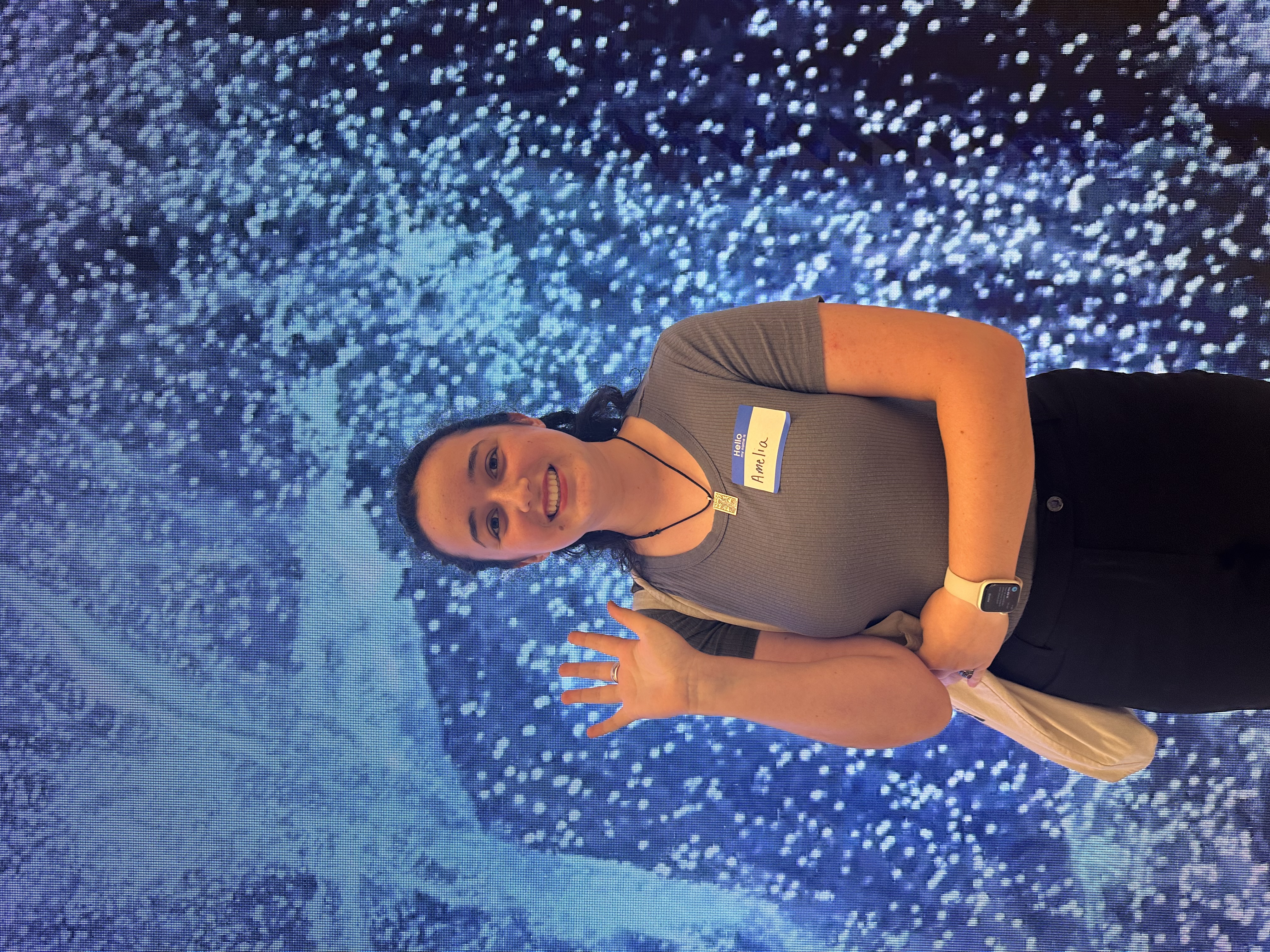Event name: Careers for Change; Storytellers
Event time and place: 6:30 pm on September 19, 2024 at the Center for Water Solutions

Enjoying the "waterfall" in the Reservoir Center.
For the second point, each presenter advocated that those who were there consider careers in water, but also communications. These two fields go together very well, as they prepare you to talk to others and spread critical information in all corners in the water industry. Each speaker reinforced how much they loved their jobs, and how if we thought we might be interested in these fields, to come talk to them, and to pursue a career, as their work is vital in many ways, and they thoroughly enjoy it.
For the final point,the speakers made sure to state that you don’t have to have a concrete job plan. They talked about where they had worked and what they had done, joking about the winding path they’d taken to what they do today, and highlighted to any future workers that you don’t have to be 100% certain of what career path you will take, as you never know where life will take you or how your interests will change.
Was the presentation convincing? Were there any contradictions or fallacies?
I did find the points convincing, mostly because of the passion of each of the speakers. They were all different ages and backgrounds which reinforced their point about everyone being able to make change. They were also very willing to talk to you after the presentation, which supported their points about encouraging young people to pursue careers in water and communications.
However, I did observe that many of the workers talking about how ‘everyone can make a large change’ worked for large corporations or the government, which can be very difficult for people to find jobs in. Companies like National Geographic will have a much, much larger impact than someone in rural Utah who works for their local paper. The same can be said about workers for the EPA and local/county/state environmental organizations. I didn’t observe any logical fallacies though or faults in critical thinking. There were definitely some diversions from the points though. The main speaker showed us a drawing he had done as a child that ended up in his local paper, which was a depiction of the attempted assassination of Ronald Reagan. This was definitely a deviation from the main point, although a funny one (the fact that the drawing was in the newspaper, not the assassination attempt itself), during the segment where he talked about his previous employment.
Although I found it convincing, I’m not sure I found it convincing enough to consider a career change. I realize that one of the main points was ‘you never know where you’ll end up’, and I’ll keep my mind open, but as of right now, my mind is still almost entirely in agreement with a pursuit of environmental policy, and then possibly environmental law. Water law could possibly be something I would encounter, but I can’t see myself focusing solely on it. That being said, water is a wide-reaching and expansive field, so I can’t say anything with 100% certainty.
What I was entirely convinced of though, was that the water industry is incredibly important, and the work that the presenters are doing is incredibly important. One of the presenters, Molly Nail, discussed how her work recently helped in the formation of an MPA in Uruguay to protect the world’s largest sea lion colony. This work particularly stood out to me because I believe we as humans, who believe ourselves to be the dominant animal on the planet with the right to do whatever we want, need to protect the animals and ecosystems our actions have harmed in the past. I was also very interested in the work of another presenter who was going to start an animated YouTube series to educate children about meteorology because he was passionate about the field from a young age. He worked as an editor for NOAA but once they saw that he ‘wouldn’t shut up’ (his own words) about meteorology, they eventually agreed to let him start making the series. It premieres in October so look out for that! Education is incredibly important when it comes to solving global issues.


